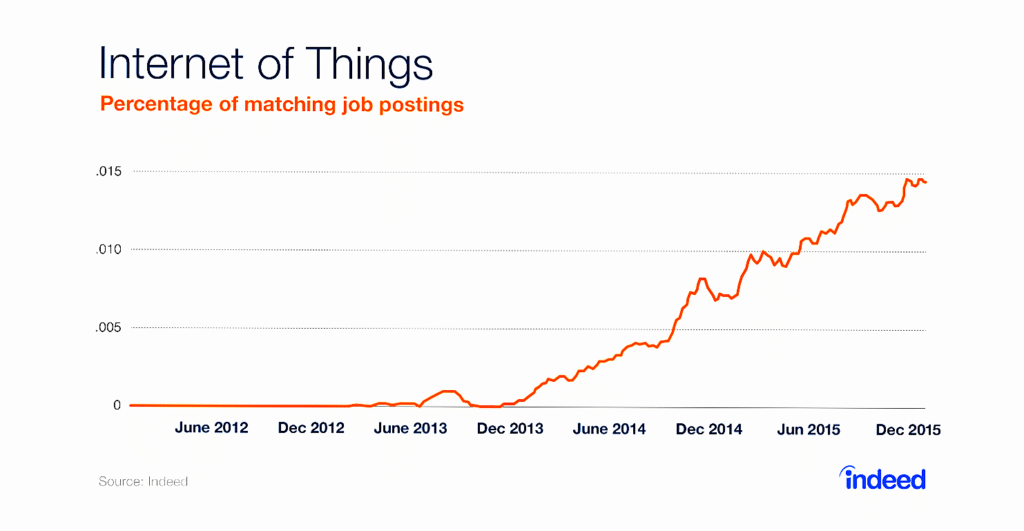The emerging tech space is changing fast. Between 30 and 50 billion new IoT devices will be online by 2020. The emerging 5G network will boast a 1000x capacity increase and compatibility with new applications such as M2M, VR, AR, and connected things. Small cells and other related technologies are rapidly finding new niches. In the past six months, the technology talent surplus in these fields has flipped upside-down into “negative unemployment.”

Indeed.com reported a sharp increase in IoT-related jobs listed within the past 18 months.
New technologies are always on the rise: connected things, connected cities, connected cars, etc. To win the war, you need a connected recruiter. Consider this quote from The Art of War, the famous military strategy treatise written nearly 2500 years ago by Chinese general Sun Tzu:
“If you know the enemy and know yourself, you need
not fear the result of a hundred battles. If you know
yourself but not the enemy, for every victory gained
you will also suffer a defeat. If you know neither the
enemy nor yourself, you will succumb in every battle.”— Sun Tzu, “The Art of War”
Any company trying to hire qualified talent is in a war with the competition. In a war, good strategy is critical to success; victory does not happen by accident. The most important factor that tech companies do not consider is what their competition (the enemy) offers:
-
Compensation packages
-
Benefits and perks
-
Training, certifications and education
-
Tools and resources
-
Environment and flexibility
-
Career growth and visibility
Are you fully aware of what you and your company offer?
Top candidates have their pick of companies. We conduct a company analysis with each hiring manager, including selling points for the job, what their competitors are offering top candidates, and how to structure a truly competitive overall offering to win the war.
Hiring is never easy, and the difficulties are compounded in a space with a huge skills gap and a short supply of talented workers. When you work with Blue Signal, you partner with recruiters who have deep industry knowledge providing a competitive edge. Never fear the result of a hundred battles (hires).
For a free consultation on how we can locate the best hire, contact us today at info@bluesignal.com. See our recent placements here.
